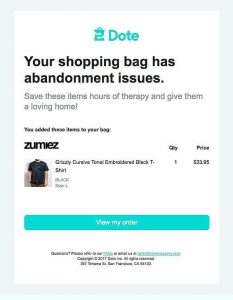
Royal Oak, MI-based Ambassador came into being the way startups sometimes do—after its founder grew disillusioned with practicing law and took up full-time entrepreneurship instead.
“I grew up in Southeast Michigan and went to law school in Chicago,” Ambassador CEO Jeff Epstein says. “I stumbled into affiliate marketing through online poker in the early 2000s, when it wasn’t explicitly illegal. In law school, I played for fun and saw how popular it was, so I started a company that helped poker companies get more players.”
This was back in the days, Epstein recalls, when Facebook was only open to undergrad students, so he referred people, one player at a time, to online poker sites through AOL Messenger. It was a tedious task, but one that sparked an epiphany: Word-of-mouth was a powerful tool, but there must be a better delivery mechanism.
Things went so well with Epstein’s foray into affiliate marketing—where businesses compensate users for bringing new customers into the fold—that he eventually sold the company and decided to move back to Michigan in 2010 to try his hand at getting another startup, Ambassador, off the ground. By this time, Facebook and Twitter had evolved and become mainstream, providing the perfect platform for word-of-mouth marketing.
Epstein says Ambassador is a referral marketing site that allows enterprise companies to leverage their best customers and most ardent fans to generate positive word-of-mouth online. Ambassador gives its customers access to a dashboard that tracks metrics and lets them manage their “ambassadors,” measuring the amount of influence each ambassador has had on growing the business. Some of Ambassador’s customers include PayPal, T-Mobile, and Spotify.
“It’s almost a database for companies,” Epstein says. “We say to our customers, ‘We don’t want to tell you who your ambassadors are; we want to give you the ability to manage them.’ We’re in the process of building the next version now, which will change the way we classify people and allow companies to automate the process of enrolling ambassadors.”
In 2011, Ambassador was accepted into the Techstars incubator in New York, but the company ended up coming back to Michigan once the program was over. “We were the only company out of the 11 we were there with to come back home,” he says. “In fact, out of the 11 in our cohort, we’re one of only three companies still in operation.”
Ambassador, which has 32 employees but hopes to hire 70 more people in the coming year—15 positions are open at the moment—monetizes its offerings by charging an annual fee that includes “success coaching” for any interested company it works with.
Along the way, Ambassador has gotten venture backing from Detroit’s Ludlow Ventures and Arthur Ventures, which is based in North Dakota. “[Arthur Ventures] only invests in middle American companies,” Epstein adds. “Their values are really aligned with ours. It’s important to us to build our company in the Detroit area and make a difference here.”
Epstein has lofty goals, he says; he’d like Ambassador to be one of the fastest-growing tech companies in Michigan within two years. “Ideally, we’d be pulling in tens of millions in revenue,” he says. “Next year, we expect to be over $ 10 million.”
Xconomy
(72)





